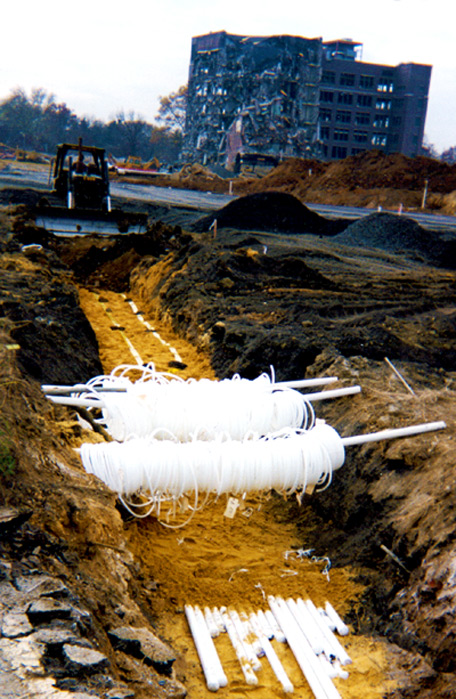Brownfield Remediation and Redevelopment (when the term “Brownfields” was born)
In 1993 RCC was retained as environmental consultant and project manager for the investigation and cleanup of a 130 acre former industrial site in northeast Philadelphia.
Historical uses on various areas of concern throughout the property included paint manufacturing, metal working, foundry, chemical manufacturing and R&D facility, plastics manufacturing, various warehousing, and truck fueling and maintenance garage.
RCC conducted a site assessment, investigations, and subsurface characterization. A Remedial Alternatives Analysis report was prepared which included documentation and results of remedial investigations, feasibility studies, pilot tests, and remedy selection for various areas of concern. Throughout all phases of the redevelopment project RCC provided project management services including regulatory agency and purchaser negotiations, construction contract and subcontractor management, and all remedial implementation oversight work.
Consulting contributions included hydrogeological and engineering design services, pilot study implementation, regulatory consulting, and labor dispute resolution.
RCC provided regulatory site closures at all Areas of Environmental Concern which enabled all 130 acres of property to be sold by our client and redeveloped by the purchasers.
Our Client estimated RCC’s management of this project saved the corporation over $10 million off their balance sheet reserve.









